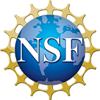
Racial Equity in STEM Education (EHR Racial Equity)
The National Science Foundation (NSF) Directorate for Education and Human Resources (EHR) is soliciting proposals for projects addressing systemic racism in science, technology, engineering and mathematics (STEM) education and workforce development through research and practice. Those who have been impacted by the inequities caused by system racism should be the primary focus for all proposals. Competitive proposals will be clear with respect to how the work will advance racial equity and address system racism.
Proposals should articulate a plan to generate knowledge through research and practice, such as:
- building theory
- developing methods
- testing approaches and interventions
- assessing the potential, efficacy, effectiveness, and scalability of approaches and interventions
- establishing, cultivating, and assessing authentic partnerships
- changing institutional, organizational, and structural practices and policies
- focusing on affective, behavioral, cultural, social components, and implications
The first full proposal deadline date is July 13, 2021. For more information, please visit the program funding page here.
Prospective PIs are encouraged to send a one-page concept paper to EHRRacialequityPD@nsf.gov in advance of submitting a proposal.





